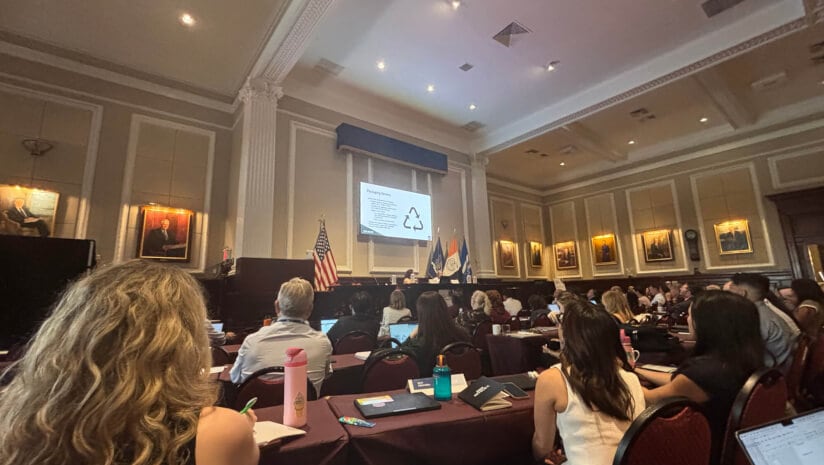The rule would have required businesses to make it as easy for consumers to cancel unwanted subscriptions and memberships as it was to sign up.
In its decision issued July 8, the U.S. Court of Appeals for the Eighth Circuit said that the FTC made a procedural error by failing to deliver a preliminary regulatory analysis required for rules that impact the U.S. economy by more than $100 million.
“While we certainly do not endorse the use of unfair and deceptive practices in negative option marketing, the procedural deficiencies of the Commission’s rulemaking process are fatal here,” the court stated in its decision.
The Click-to-Cancel rule sought to update the FTC’s original Negative Option Rule of 1973—which initially focused on mail-based book and record clubs—to address evolving digital marketing practices and protect consumers in the modern subscription-based economy.
Negative options and reasonable alternatives
The update proposed to extend the scope to cover “all forms of negative option marketing in all media” and amended the rule by a 3 to 2 vote in October 2024. It incorporated provisions that bar sellers from misrepresenting material facts and required disclosure of material terms, express consumer consent and a simple cancellation mechanism.
Speaking at the ACI-CRN Legal, Regulatory and Compliance Form on Dietary Supplements last month, FTC attorney Christine Delorme noted “a significant expansion of potential civil penalty liability under this rule.”
“The biggest, biggest change that all of you should be aware of with the negative option rule is it actually bans any misrepresentation of any material fact,” she said. “I don’t mean just pertaining to the option or how much you pay. It also pertains to the actual product you’re selling, so that would include misrepresentations about what conditions it may impact.”
Although civil penalties were expected to take effect on July 14, various industry associations and individual businesses filed petitions in four federal circuit courts, arguing that the FTC exceeded its statutory authority in issuing the rule.

The FTC initially asserted that it was not required to provide a preliminary regulatory analysis based on its determination that the rule’s impact on the national economy would be less than $100 million. However, an administrative law judge decided that the economic impact would exceed the $100 million threshold.
“When required, a preliminary regulatory analysis must include a description of reasonable alternatives to the proposed rule, a cost-benefit analysis of each alternative and an assessment of the effectiveness of the proposed rule and each alternative in achieving the Commission’s stated objectives in promulgating the rule,” the court clerk wrote, noting that the “procedural shortcut” had curtailed both public participation and deeper substantive analysis.
The petitioners contended that had this analysis been available, they could have attempted to demonstrate that their industries do not engage in the allegedly widespread unfair and deceptive practices the rule aims to address.
The appeals were filed by Custom Communications, Inc., U.S. Chamber of Commerce, et al., Michigan Press Association, et al. and Electronic Security Association.
Following the decision to vacate
In a statement issued on July 9, the U.S. Chamber of Commerce celebrated the court’s decision to vacate the FTC’s Click-to-Cancel Rule.
“The court ruled that federal agencies must follow the rulemaking process, including conducting a thorough analysis of how much proposed regulations will cost consumers and businesses,” said Neil Bradley, the Chamber’s executive vice president and chief policy officer. “The decision provides a safeguard against rushed rulemaking and reinforces the importance of agencies addressing public concerns.”
Truth in Advertising (TINA) described the decision as “a definite blow to consumers who overwhelmingly supported the rule”, however legislation and lawsuits in place or in process continue to provide recourse in the absence of FTC’s right to enforce click-to-cancel provisions.
“TINA.org is confident that state and federal legislators will continue to push for new laws that offer similar consumer protections as the failed FTC rule,” a TINA spokesperson told NutraIngredients on July 9. “For example, it is our understanding that Senator Brian Schatz (D-HI) will be reintroducing the Unsubscribe Act (as early as today).”
Some states, including California, have already passed their own laws that require easy cancellation of automatic purchase renewals. Section 5 of the Federal Trade Commission Act (FTC Act), enacted in 1914, has also long prohibited “unfair methods of competition in or affecting commerce” and “unfair or deceptive acts or practices in or affecting commerce”, and the Restore Online Shoppers’ Confidence Act (ROSCA) of 2010 offers additional protections.
In April, the FTC filed a suit against Uber under ROSCA, which is limited to online sales with negative option features but requires clear terms, affirmative consent and easy cancellation. It alleges that the rideshare and delivery company charged consumers for its Uber One subscription service without their consent, failed to deliver promised savings and made it difficult for users to cancel the service despite its “cancel anytime” promises.
“Americans are tired of getting signed up for unwanted subscriptions that seem impossible to cancel,” FTC Chairman Andrew Ferguson shared in a statement at the time. “The Trump-Vance FTC is fighting back on behalf of the American people. Today, we’re alleging that Uber not only deceived consumers about their subscriptions but also made it unreasonably difficult for customers to cancel.”
The FTC did not respond to a request for comment on the Eighth Circuit court’s decision prior to publication.



